
Respondents
Once again our Salary and Market Trends Survey offers a fascinating snapshot into a profession that is continuously changing.
Last year’s survey showed that project work was increasingly attractive to young people, with 44 per cent of those questioned having five years or less project management experience. That spike in new entrants has now flattened somewhat, to stand at 34 per cent, which suggests that the newer cohort are staying in the profession, gaining experience and moving up the ladder.
This year’s research also shows the enduring strength of some core industries, from construction and defence to energy and transport. Project professionals continue to work in organisations of all sizes, but the average project size has grown by £11m, to a mean level of £118m.
Significantly, it may be that the pandemic has emphasised the value of professional qualifications: the research shows that interest in project management remains strong, with 86 per cent of those questioned holding at least one project management qualification, an increase on the previous year.
Interactive chart - make your selection to view the data and compare results
Sector
As the findings broadly illustrate, movement between roles and sectors in the past 12 months has declined markedly, in no small part due to coronavirus. As a result, it’s not surprising that the same sectors remain the most popular. As with last year, construction, defence and energy make up the top three most popular sectors. It’s perhaps not surprising that all three track at either average or above on some key metrics, including proportion in permanent employment, job satisfaction and base salary. Further down the list, there have been small increases in the health and IT sectors.
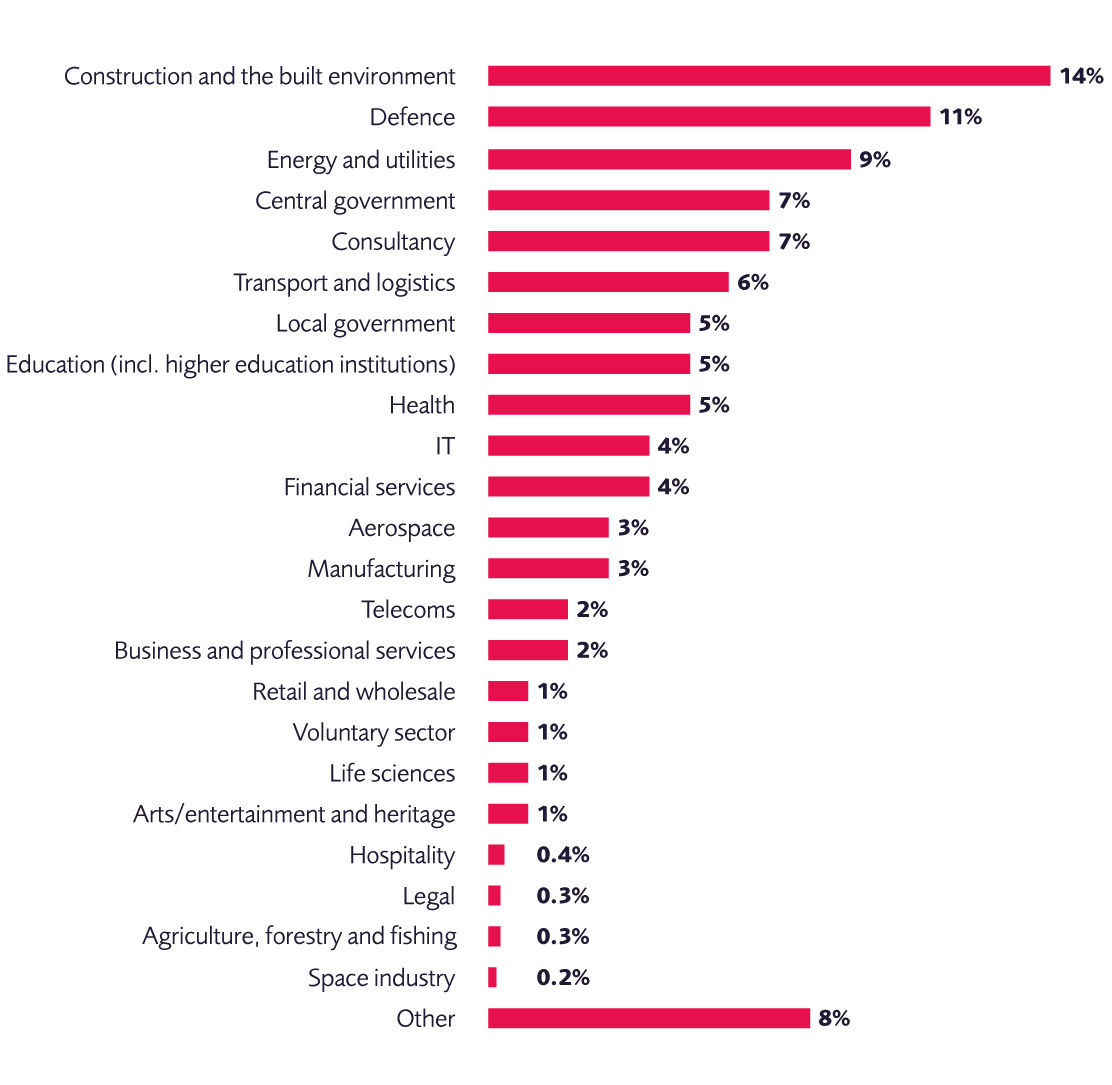
Organisation size
Again, the marked decline in movement is reflected in the size profile of the employers represented. Indeed, the split shows virtually no change from the previous year, with a bulge in the middle as organisations employing between 1,000 and 4,999 staff make up the single largest group (18 per cent). Meanwhile, the proportion of those employed at the largest organisations – those with 25,000 staff or more – has grown from 29 per cent to 31 per cent.
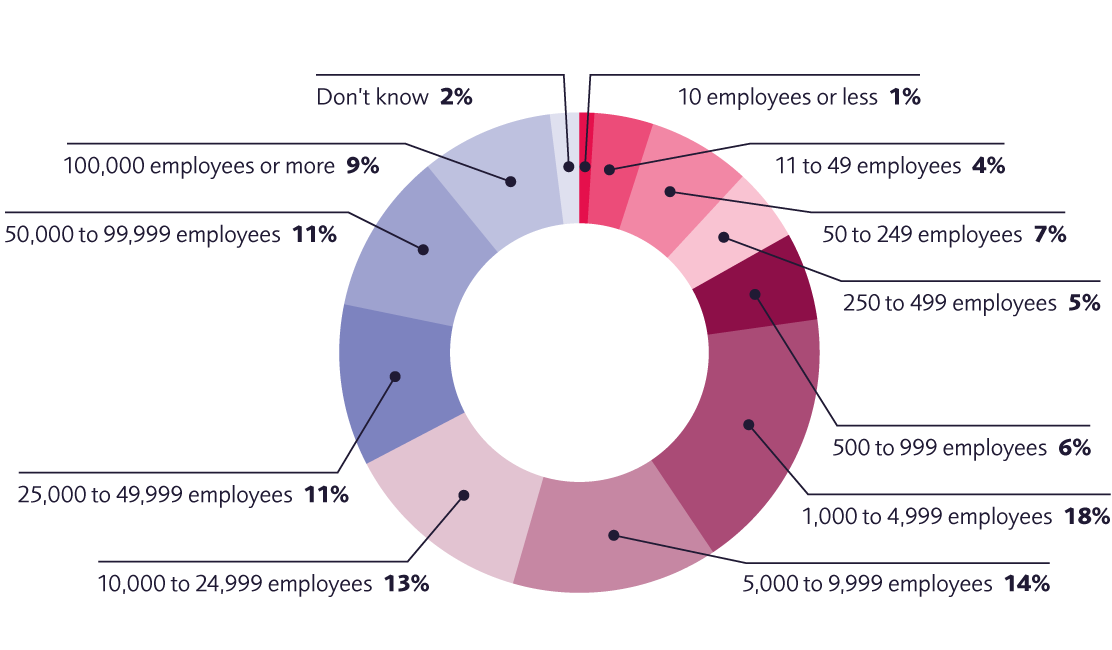
Project size
Despite the coronavirus pandemic, the mean value of the largest projects worked on by project professionals over the past 12 months has increased by £11.6m since last year.
The average project value has hit a mean level of £118.2m, up from £106.6m. Regionally, the average value of a project in the North West (£140,833,453) has now overtaken London (£137,842,580) for the first time, but projects outside the UK remain the most valuable (£160,673,641).
It is also worth noting that those who have achieved Chartered Project Professional (ChPP) status are being trusted with the largest projects. The research shows that they tend to work on projects with a mean value of £233.7m – far above the average value.
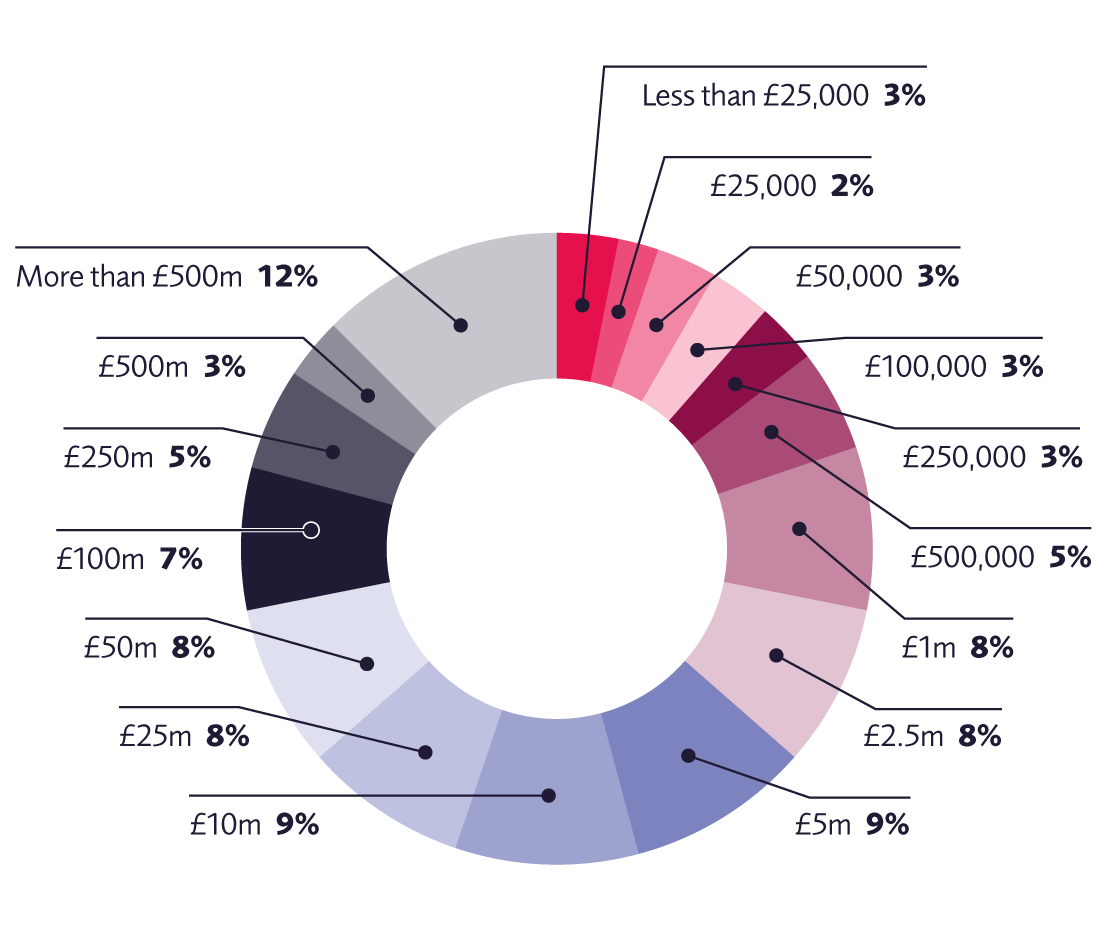
Experience
Last year the results highlighted a significant increase in the number of younger people joining the profession. That pipeline of talent is now moving further up the value chain and taking on more senior roles as they build on their skills and experience.
That trend has dipped slightly in this year’s results, with the proportion of those with less than two years’ experience in the profession dropping from 20 per cent to 14 per cent, and those with less than five years’ experience has declined from 44 per cent to 34 per cent.
That can be partly explained by last year’s cohort gaining more experience and reporting broad levels of satisfaction, as well as a shift in the profile of survey respondents towards the older age brackets. However, it’s worth noting that one in five women in the survey are new to the profession, with less than two years’ experience.
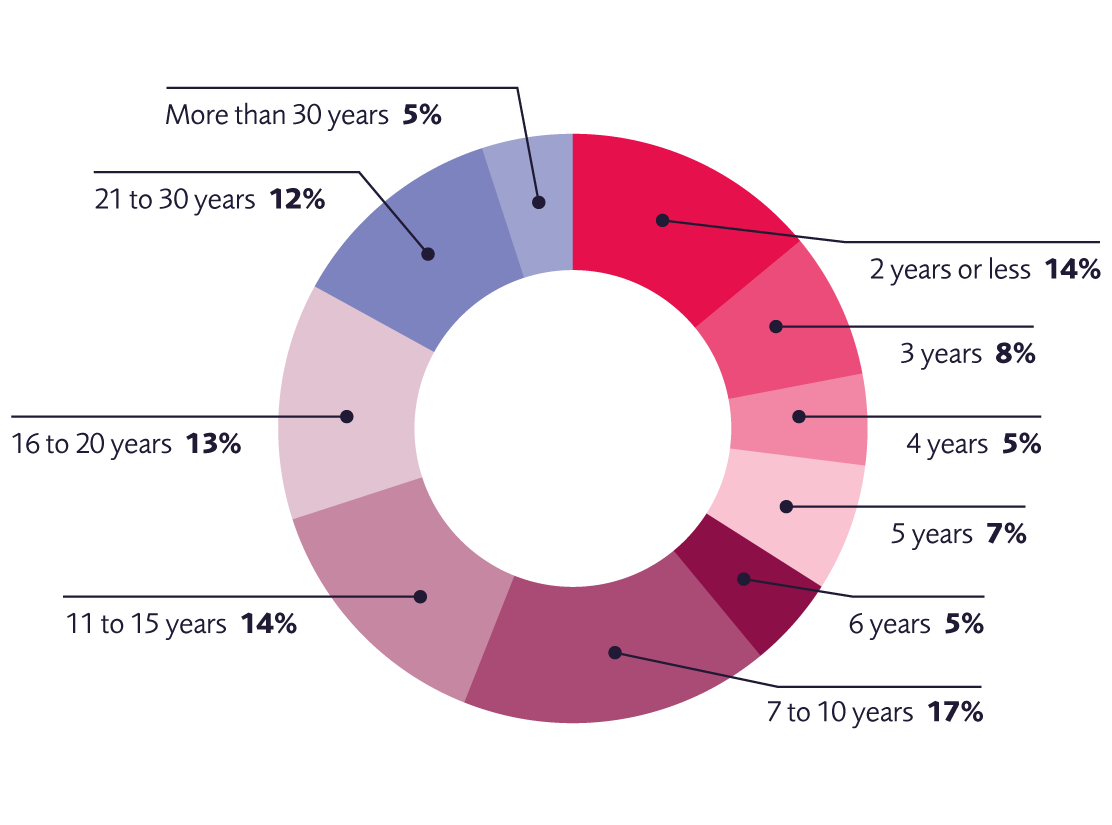
Education
It is encouraging to report a significant increase in the number who hold a project management qualification, rising from 83 per cent to 86 per cent over the past year.
Once again it would appear that new entrants continue to see a project management qualification as a good way to build a career. Interest in the APM Project Fundamentals Qualification remains steady at 20 per cent this year. It is especially popular among 25-to-34-year-olds, with 27 per cent of respondents in that age bracket pursuing the qualification. However, the APM qualification of choice continues to be the APM Project Management Qualification with 42 per cent of respondents having successfully passed the exam.
Beyond that, the educational profile of the project profession remains stable. The majority have been educated to university level or above (79 per cent). This year’s survey reveals little change elsewhere, with the proportion of those who are Chartered increasing slightly from 14 per cent to 16 per cent. Those with postgraduate degrees is also largely unchanged.
Interestingly, of those who say they were the first in their family to attend university, more than a third went on to qualify at master’s level, indicating the commitment displayed by those for whom higher education was not a given. Energy was the sector with the highest proportion of Chartered Project Professionals (ChPP), at 11 per cent.
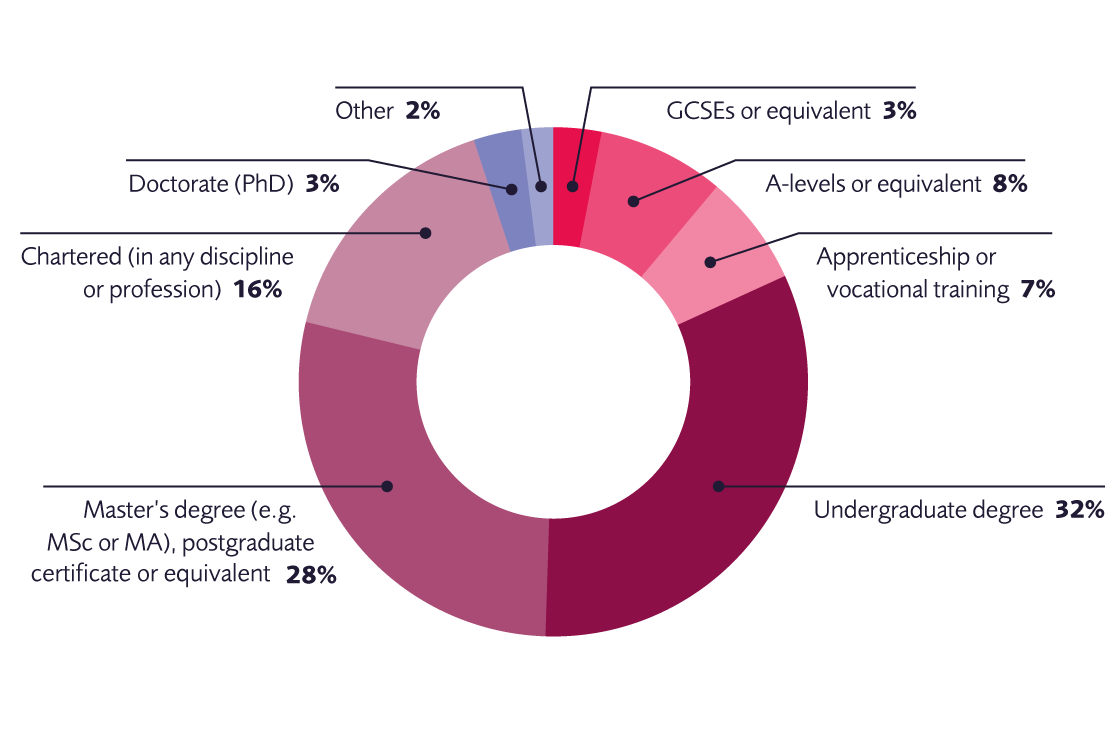
Explore APM





